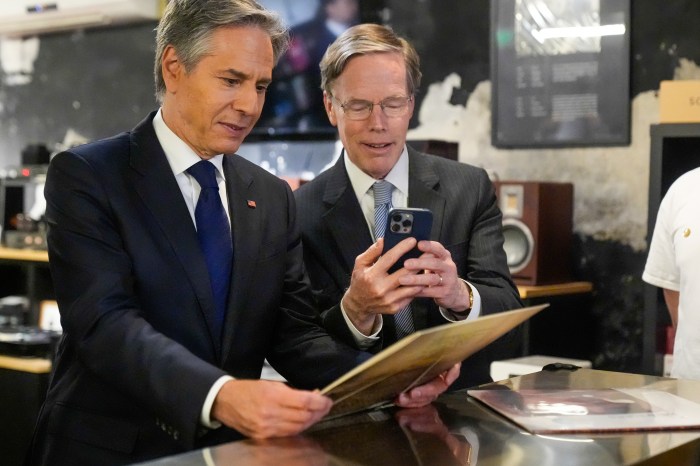David Berman, the poet laureate of American songwriting, was making his comeback. The wry observer of the ironies and beguiling nature of contemporary American life -when Berman stopped releasing music in 2009, and retired his musical project, The Silver Jews, a vacuum of literate, thoughtful, funny songwriting was created. This void was filled by many, mostly transparent, imitators.
But now, it’s 2019. Strange things have been happening in many facets of politics and culture. But among these events, there had been tidings. Among them was that Berman announced that he would be returning to music with a new moniker – Purple Mountains – and releasing an eponymous record in late July. A tour was to follow in early August.
We reached out to his label and interviewed Berman regarding the tour, the new album and his approach to art and experiences in life. An article was planned for the following week. In the time between the interview and publication, on August 7th, David Berman sadly took his own life.
R.I.P., David Berman.

Photo: Getty Images
How do you first feel when interacting with new people?
David Berman: My friend Dan and I joke that when we’re exiting an airplane and the crew is standing there at the end of the aisle offering a “have a nice stay”, “thank you for flying with us” to each disembarking passenger that they look away or get busy doing something in the galley when we reach the exit. I want to be likable, but I feel I give off a bad vibe that makes others not trust me.
To me, the overall vibe on Purple Mountains has a more overall honky-tonk feeling and breezier Nashville tone to it than some of the previous records. I remember reading an old interview with you where you said you didn’t like the idea of having to sit down and pay attention to every line of a record the first time you heard it. Did you feel like this album was a progression from the MFA-centric lyrics before?
David Berman: I think that’s definitely true. there’s less listener manipulation. less surreal furniture, few if any non-sequitur’s, less ornamentation, little misdirection. It’s all part of my desire to be liked and trusted when traveling out of the house.
I’ve read that you scrapped a handful of projects with different producers during the interval since Lookout Mountain, Lookout Sea. Do you find a feeling of freedom or growth when you ultimately discard works you may have initially found compelling?
David Berman: It’s hard to do. being finished is an amazing feeling. being close to finished is exciting. Scrapping everything is always unpopular with the people I’m working with. Financially, it’s a nightmare. it would be so easy to submit that work and so hard to start again. No one believes you when you make your case. More people should do it, though.
The last two Silver Jews records were self-produced, and I understand the recording for the Purple Mountains record went relatively quickly. How did you come to reach out to Woods for production?
David Berman: I think asking an artist who produces themselves and has a sound you think would fit your songs is the best way to go. There are no professional producers who are going to get what I do like another artist does. Mark Nevers could. But he’s the only producer I’ve ever met who likes my “body of work” and thinks I’m a singer.
How do you feel about the accessibility of music in 2019? Drag City’s music wasn’t on Spotify until recently, and I’ve seen a good number of friends find your music who weren’t familiar before. Do you think something inherently significant is lost through algorithmic recommendations, or do you like that your work is exposed to different and/or younger audience now?
David Berman: I don’t waste too much time struggling against the inevitable. I can see how in a world without Spotify, my music could be lost in the attic. Even when drag city was spurning Spotify, I was using it. I didn’t pay attention to Napster, but I think I had Spotify from when it first came around.
I spoke with a painter recently who said an artist from their 20s & 30s is ultimately finding the themes, limits and ground of their work. Everything from their 30’s onwards is ultimately perfecting and working within the confines of those worlds they establish when they’re younger. I’ve read a lot about your thoughts and criticism on the output of famous or popular artists after their 30s, which I wholly agree with. Did working on this new record feel like an attempt to prove that you were able to overcome that perceived wall?
David Berman: I tried. it was my goal. I’ve been disappointed by older artists from since I was a teen. By X after “More Fun In The New World”, The Meat Puppets after “Up On The Sun”, R.E.M. after “Fables…”, Echo And The Bunnymen after “Ocean Rain”, Dinosaur Jr. after “Bug”, Sonic Youth after “Daydream Nation”, New Order after “Low-Life”, Butthole Surfers after “Hairway To Steven”. I’m aware that people will add Silver Jews after “American Water”. “Tanglewood Numbers” must seem as silly and bloated as I regard “Goo” or “Green”.
I’ve read that Tom Waits likes to make his songs with sad lyrics play upbeat and his songs with positive lyrics play downbeat. I noticed the same juxtaposition with the lyrics and tempo on “All My Happiness Is Gone: – does structuring a song like that, with contradictions make it easier to be more candid?
David Berman: That’s plausible. I like that theory. It seems analogous to writing television with likable anti-heroes.
How has personal finance affected your approach to art?
David Berman: I’m amazed that I’ve gotten this far without declaring bankruptcy. The first tour I did to get out of debt. This tour I would do, even if I was debt-free. I look forward to it. But because I am paying interest on 50k of credit card debt, and because Drag City has spent 50k on the record of its own money. If everything goes as planned touring-wise. It looks like we’re both going to get back to zero by Xmas.
I’ve read you feel that younger generations have an easier time finding rhymes, partially thanks to their generations mass exposure to hip-hop. Do you conversely sense any generational advantages you have being born Generation X?
David Berman: You’re right about the rhyming. I’m very envious of the average kids ability to rhyme! Generation X has no illusions about the baby boomers. Often you find yourself watching with amazement as a giant population of knavish elders shamelessly rook their children and grandchildren to their financial advantage. And there is a feeling that we were lucky to see all the hippy masks come off in the eighties before the kindly social elders masks were glued on in the nineties.
“Like Like the the the Death” has long been my favorite song of yours. Until recently, I always thought the line was ‘Do you believe in MDMA?’ not ‘Do you believe in MGM endings?’ and it kind of stunned me that a song I had whiffed understanding a line in a song I had listened to so many times. Do you have any songs that you misheard the lyrics initially and didn’t realize it until much later? Have you ever found yourself writing being pleased by something made on accident?
David Berman: For pleasant accidents, “Nights That Won’t Happen”, came out of mishearing “Knight In White Satin” – The term for these errors is ‘Mondegreen’s’. Purple Mountains itself is a mondegreen. The lyric in America the Beautiful is “for purple mountain majesties”. 95% of Americans sing “for purple mountain’s majesty”. It’s our unofficial national anthem and nearly all of us has the second line of the song burned incorrectly into our brains!
–
From everyone at Metro, R.I.P to David and our love and respect to anyone that was close to him or was touched by his work.



















